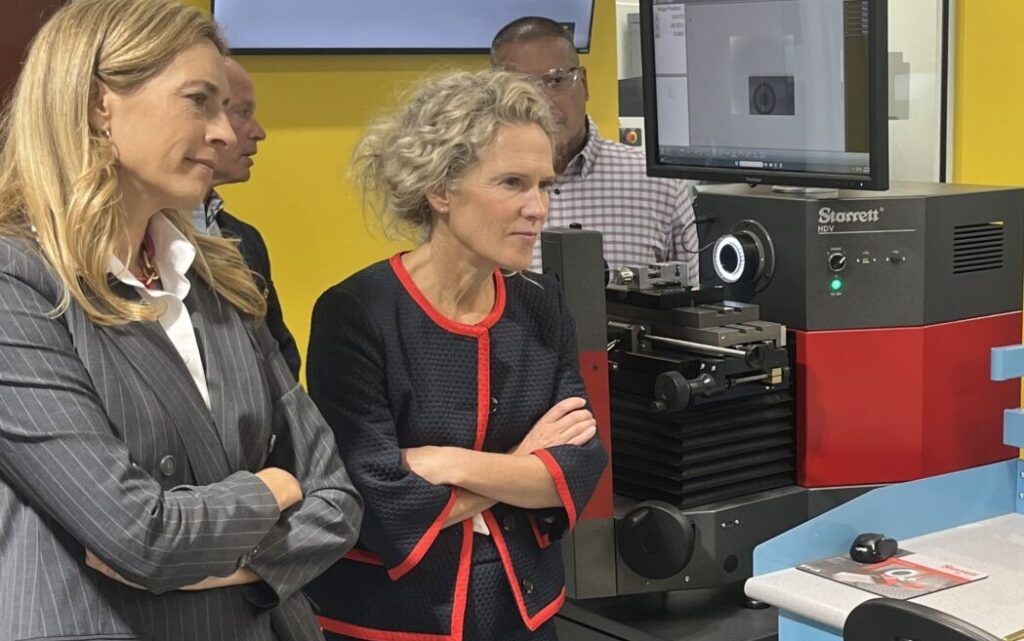Sherrill Seeks Safeguards for U.S. Technology

PARSIPPANY – Congress passed the “CHIPS Act” just about a year ago and many Democrats want to make sure people don’t forget about it.
President Joe Biden is on the road this week, touting both the CHIPS Act and the Inflation Reduction Act; he signed both last August.
Back in New Jersey, CD-11 Rep. Mikie Sherrill had the CHIPS Act in mind Tuesday afternoon while visiting Onkos Surgical, a specialty MedTech company focused on developing solutions for surgeons who specialize in musculoskeletal oncology and complex orthopedic conditions.
As the congresswoman and others, including Morris County Commissioner John Krickus and local and state economic development officials toured company offices, they observed workers using advanced technology to create various devices.
A latest creation is a Juvenile Tumour System, which enables limb stabilization and growth in children with bone cancer and other malignant diseases.
Afterwards, Sherrill addressed and took a few questions from about 70 employees.
The centerpiece of the CHIPS Act is federal funding to spur the manufacture of semiconductors, many of which are now made in China. Today’s polarization in Washington, notwithstanding, the bill passed last year with some Republican support in both houses. However, New Jersey’s two GOP congressmen at the time, Chris Smith and Jeff Van Drew, opposed it.
In a release, Sherrill said the act is already working, noting that, “We’ve already seen $231 billion of private investment into chips manufacturing. And we’ve seen an 80 percent rise overall in manufacturing construction, year after year, which is really shocking.”
Talking to employees, she said some hoped that trade and increased cooperation with China would lead to more democracy. But that is not happening.
Sherrill said the Chinese are still pilfering U.S. technology and abusing their own people through forced labor and other restrictions.
That makes it imperative for the United States to manufacture its own microchips.
“We are fencing off an area that we regard as such a national security priority,” she said,
Sherrill said she doesn’t think the goal should be complete protectionism, but limited action to protect U.S. investment and industry.










Leave a Reply